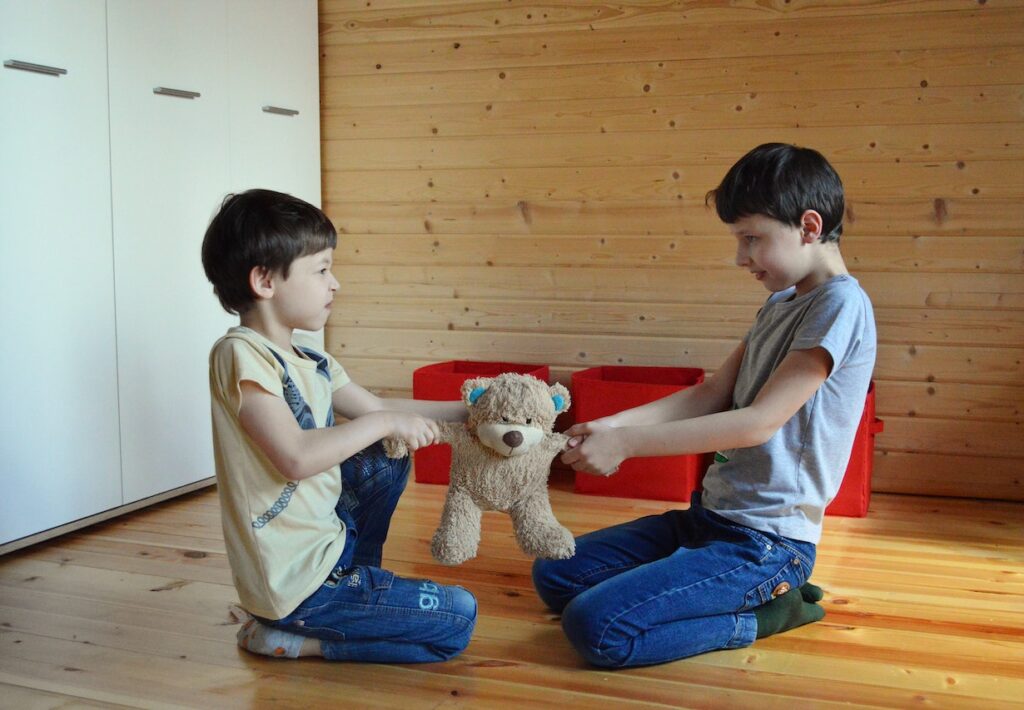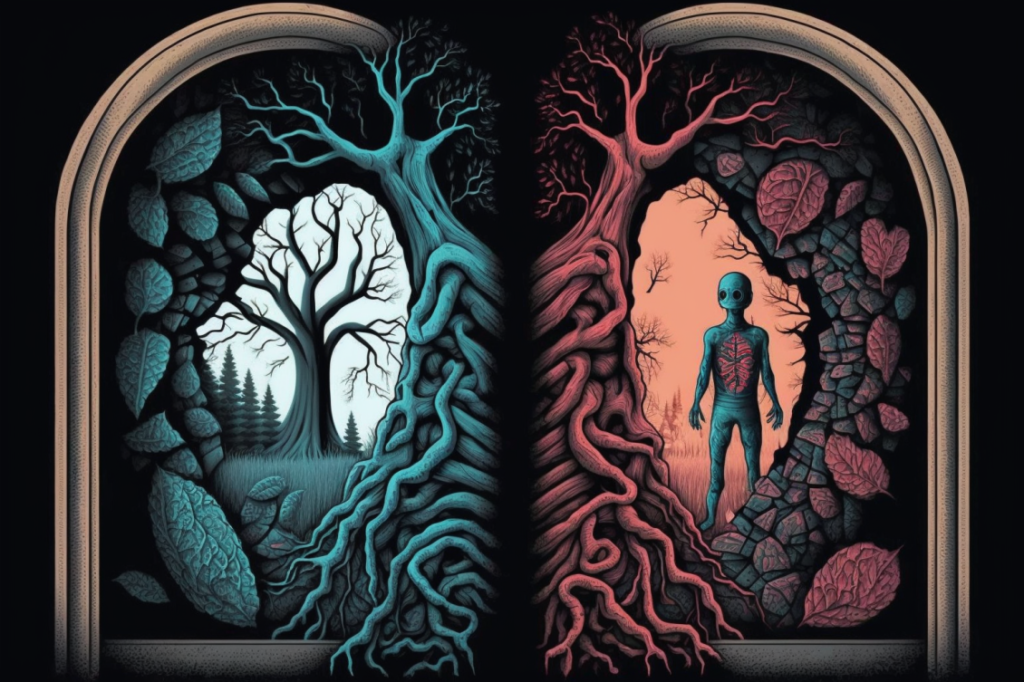
Introduction: Understanding Childhood Trauma and Its Long-Term Effects
Childhood trauma is a profound and unfortunately common experience that can impact adult Relationships, especially when it comes to forming relationships. But what exactly constitutes this type of trauma, and how prevalent is it in our society?
Definition of Childhood Trauma
Childhood trauma encompasses a range of distressing experiences that a child encounters during their formative years. These events can take the form of physical, emotional, or sexual abuse, as well as neglect. These experiences have profound implications, often setting the stage for an individual’s mental, emotional, and social development. When children are exposed to such harmful circumstances, their sense of safety and trust in the world can be irrevocably damaged. Therefore, recognizing and addressing these traumatic experiences is of paramount importance for ensuring healthier adult life and relationships.
Prevalence and Importance of Addressing Childhood Trauma
It’s crucial to recognize that childhood trauma is not a rare occurrence. According to the Center for Disease Control and Prevention, more than two-thirds of children reported at least one traumatic event by age 16. The aftermath of these experiences can permeate every aspect of an individual’s life, particularly their adult relationships.
Different Types of Childhood Trauma
Understanding the impact of childhood trauma requires first recognizing its many forms. While they all can lead to long-lasting effects, the nature and intensity of these effects can vary based on the type of trauma experienced.
Physical Abuse
Physical abuse during childhood can have severe long-term impacts on an individual’s ability to form healthy adult relationships. These individuals often struggle with trust issues, fear of intimacy, low self-esteem, and heightened anxiety in their relationships. The trauma they experienced may lead them to develop maladaptive coping mechanisms, like aggressive behavior or emotional withdrawal, further straining their interpersonal dynamics.
Often, they find it challenging to set boundaries or assert their needs, fearing retaliation or rejection. Alternatively, they may become overly protective or controlling, trying to ensure their safety. Professional help, like therapy or counseling, can greatly assist these individuals in understanding and overcoming their trauma, promoting healthier relationship patterns.
Emotional Abuse
Emotional abuse in childhood, though often overlooked, can be just as damaging as physical abuse in shaping adult relationships. Emotional abuse can include constant criticism, humiliation, rejection, or manipulation, which can lead to severe emotional and psychological consequences.
Adults who faced emotional abuse as children often struggle with feelings of worthlessness, insecurity, and fear of rejection, making it difficult for them to trust and open up in relationships. They may find it hard to express their emotions effectively, or may constantly seek approval and validation from others. It’s important to note that emotional abuse can have profound implications on an individual’s mental health, potentially leading to depression, anxiety, and PTSD.
Sexual Abuse
Childhood sexual abuse is another form of trauma that can significantly impact adult relationships. Survivors may grapple with feelings of shame, guilt, and betrayal, often leading to difficulties in intimacy and trust in their relationships.
They may also struggle with sexual dysfunction or confusion about their sexual identity. Alternatively, they may engage in risky sexual behaviors, further endangering their well-being. Seeking help through therapy or support groups can provide these individuals with a safe space to share their experiences, process their trauma, and develop healthier relationship skills.
Neglect
Neglect, or the failure of a caregiver to provide for a child’s basic physical and emotional needs, can also have severe implications for adult relationships. Individuals who faced neglect as children may struggle with feelings of abandonment, unworthiness, and fear of dependency.
In their relationships, they may become overly independent, fearing reliance on others, or conversely, may become overly clingy, fearing abandonment. They may also struggle to recognize and communicate their needs effectively, leading to unfulfilling relationships.
Remember, no matter the trauma, healing is possible with time, patience, and professional help. The journey may be difficult, but with support and understanding, individuals can overcome their past and build healthier relationships.
How Childhood Trauma Manifests in Adult Relationships
The way in which childhood trauma shows up in adult relationships can vary greatly, but some patterns are commonly observed among survivors.
Trust Issues and Attachment Styles
Childhood trauma often results in trust issues in adulthood, significantly affecting how individuals form attachments. Traumatized individuals might exhibit anxious attachment, characterized by a need for reassurance and fear of abandonment, or avoidant attachment, characterized by emotional distance and independence. Understanding these attachment styles is crucial as they play a significant role in how individuals engage in their relationships.
Impact on Self-Esteem and Communication
Childhood trauma can severely impact a person’s self-esteem and communication skills. Low self-esteem can lead to feelings of unworthiness and can create difficulties in expressing needs or setting boundaries in a relationship. Such individuals might also struggle with effective communication due to fear of conflict or rejection, making relationship maintenance challenging.

Link Between Childhood Trauma and Mental Health Disorders
Childhood trauma significantly increases the risk of developing mental health disorders like depression, anxiety, and PTSD. These conditions introduce additional challenges in maintaining healthy relationships. For example, depression can lead to emotional withdrawal, while anxiety might heighten fears of abandonment or conflict. PTSD can cause flashbacks, hyperarousal, and avoidance, all of which can impact relationship dynamics significantly.
Depression and Anxiety
Depression and anxiety are common mental health disorders that can stem from childhood trauma, and they can significantly impact a person’s ability to form and maintain healthy relationships as an adult.
Depression, characterized by persistent feelings of sadness, loss of interest, and hopelessness, can lead individuals to withdraw from relationships, further isolating them and deepening their depressive symptoms. They may struggle to engage in social activities, withdraw from loved ones, or fail to communicate their feelings effectively, which can strain their relationships significantly.
Anxiety, on the other hand, is characterized by excessive and persistent worry, fear, and nervousness. Individuals who have anxiety may constantly fear abandonment or rejection in their relationships due to their past traumatic experiences. They may become overly dependent on their partners for reassurance, or conversely, may avoid relationships altogether to prevent potential heartbreak.
Moreover, these mental health conditions can lead to other issues like low self-esteem, communication difficulties, and unhealthy attachment styles, further complicating the individual’s interpersonal dynamics. They may also trigger negative thought patterns and behaviors in relationships, such as jealousy, possessiveness, or avoidance, further straining their connections with others.
Importantly, seeking professional help can significantly alleviate these symptoms and improve one’s relationship health. Therapies like cognitive-behavioral therapy can help individuals recognize and challenge their negative thought patterns, while medication can help manage severe symptoms. Self-care practices, mindfulness techniques, and supportive social networks can also play a crucial role in managing these conditions and promoting healthier relationships.
Post-Traumatic Stress Disorder (PTSD)
Post-Traumatic Stress Disorder (PTSD) is a severe mental health condition triggered by witnessing or experiencing terrifying events, often prevalent in individuals who have undergone childhood trauma. PTSD can have profound implications on an individual’s adult relationships.
PTSD symptoms may include intrusive memories, avoidance behaviors, changes in emotional reactions, and alterations in cognition and mood. Individuals may suffer from flashbacks, nightmares, or severe anxiety, leading to difficulties in maintaining normal daily routines and relationships.
For instance, they may become overly vigilant and anxious in their relationships, fearing harm or betrayal. They may also avoid intimate relationships, fearing triggers or emotional vulnerability. At times, they may struggle with emotional numbness, finding it hard to express love, joy, or affection, creating a distance with their loved ones.
Moreover, PTSD can also lead to co-occurring conditions like depression, anxiety, or substance abuse, further complicating their relationship dynamics.
However, PTSD, like any other mental health disorder, can be managed with the right treatment and support. Trauma-focused cognitive-behavioral therapy, eye movement desensitization and reprocessing, medication, and support groups can be highly effective in managing PTSD symptoms. With time, patience, and professional help, individuals can regain control over their lives, navigate their relationships healthily, and embark on their healing journey.
Ways to Mitigate the Impact of Childhood Trauma on Adult Relationships
While the effects of childhood trauma can be daunting, healing is possible. There are various ways to mitigate its impact and foster healthier relationships.
Therapy and Counseling
Therapy is a vital resource for those affected by childhood trauma. Trauma-informed therapists can help individuals process their experiences, develop coping mechanisms, and build healthier relationships. Techniques like cognitive-behavioral therapy,
Self-Care and Emotional Regulation Techniques
Self-care plays a crucial role in the healing process. Regular exercise, balanced nutrition, adequate sleep, and mindfulness practices can help individuals manage their trauma symptoms and improve their overall well-being. Emotional regulation techniques, such as deep breathing, progressive muscle relaxation, and grounding techniques, can help individuals manage their emotional responses and cultivate healthier interactions in their relationships.
Conclusion: Embracing Healing and Building Healthy Relationships
Healing from childhood trauma is a long-term process, requiring patience, resilience, and self-compassion. However, with the right resources, support, and commitment, individuals can navigate their healing journey successfully. They can learn to build trust, improve communication, foster healthy attachments, and eventually build healthy, fulfilling relationships.
The Importance of Professional Help
Addressing childhood trauma and its effects on adult relationships often requires professional help. A therapist or counselor can provide a safe space to process traumatic experiences and develop strategies for healthier interpersonal interactions. Seeking help is not a sign of weakness; it is a step towards healing and growth.
Get Professional Help from the best online couples therapy platform and it is %20 off.
The Journey of Healing: A Lifelong Commitment
Healing from childhood trauma is not a one-time event, but a lifelong journey. It involves acknowledging the past, seeking help, practicing self-care, learning new relationship skills, and being patient with oneself. Despite the challenges, the journey towards healing and healthier relationships is incredibly rewarding, leading to a stronger sense of self and more fulfilling relationships.
FAQ
- What are the signs that childhood trauma is affecting my adult relationships?
- Difficulty trusting others, low self-esteem, communication problems, and certain mental health issues may indicate that childhood trauma is affecting your relationships.
- How can I help a partner who has suffered childhood trauma?
- Be patient and understanding. Encourage them to seek professional help if they haven’t already, and learn about trauma and its effects to better understand their experience.
- Is it possible to completely heal from childhood trauma?
- While the impact of childhood trauma can be long-lasting, healing is certainly possible with time, self-care, and often professional help.
- What resources are available for those affected by childhood trauma?
- Therapy and counseling, support groups, and informational resources like books and websites can be incredibly helpful for those dealing with the effects of childhood trauma.
- How does therapy address childhood trauma and its impacts?
- Therapy can help individuals understand and process their trauma, develop coping strategies, improve self-esteem, and build healthier relationship skills.
Key Takeaways
- Childhood trauma can have profound and long-lasting effects on adult relationships.
- These effects can manifest as trust issues, communication difficulties, and mental health disorders.
- Seeking professional help and practicing self-care are crucial steps towards healing and building healthier relationships.
- With patience, resilience, and support, individuals affected by childhood trauma can navigate their healing journey and foster more fulfilling relationships.
Outlink references:
- Centers for Disease Control and Prevention: Child Abuse and Neglect: Risk and Protective Factors
- Substance Abuse and Mental Health Services Administration (SAMHSA): Types of Trauma and Violence





